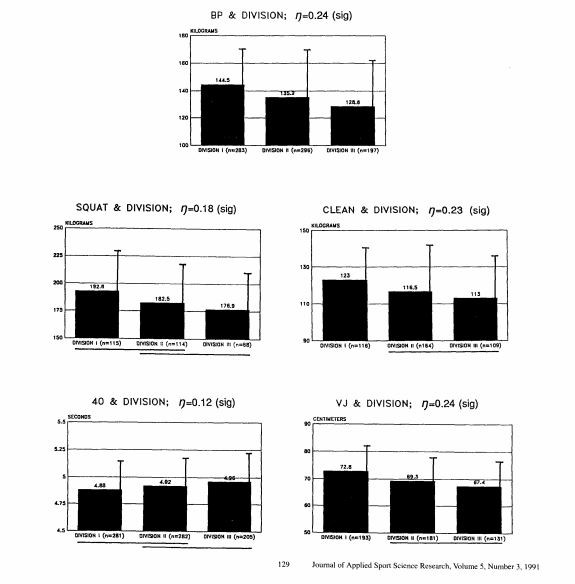The Case for Strength: Level & Playing Time
I remember back in high school playing basketball. And we had a coach that tended to go with the older players as starters and bring in the underclassmen as subs.
Looking back our coach probably had his reasons for his line-up. Older players would graduate soon and this would be their last year to play high school ball. Or maybe the older players had more experience and a longer relationship with the coach. And it's possible that the older players were simply bigger and stronger and got more playing time as a result.
Seeing as how a year later, when I graduated high school, tipping the scales at a buck fifty, I wasn't going to be intimidating anyone on the court with my physical presence.
But this didn't help my competitive nature and desire to be a starter and on the floor getting more playing time.
Maybe if I were a little more on top of the literature back then I could have advocated for myself by hitting the weight room a little more frequently. Actually, who's kidding who? I never hit the weight room at all as a high school athlete. But I probably should have.
Because the truth is that stronger athletes:
- play at a higher level
- get more playing time
But this isn't just an opinion but findings from a research study by Fry & Kramer (citation below) that looked at a number of performance tests of American college football players playing NCAA Division I, II and III. In total 19 NCAA programs participated in the study involving almost a thousand players (n=981).
The authors of the study looked at five performance tests and compared this to level of play (i.e. Division I, II or III) and playing time (starter v. non-starter). The performance tests they looked at included:
- bench press (BP)
- back squat
- power clean
- vertical jump (VJ)
- 40 yard dash
The tables below show how players performed in the bench press (BP), squat, clean, 40 and VJ based on division. From left to right the three black bars represent Division I, Division II and Division III respectively.
So it's pretty clear, that for American football anyway, the stronger you are the better chance you will be playing at a higher level.
Now what about within a level, is there a difference in strength between starters and non-starters? The tables below look at the same five performance tests and broke down the numbers to distinguish between starters and non-starters. The black bars represent starters and the gray hashed bars represent non-starters. The bars are paired based on level of play going from the left to right. i.e. the first two bars on the left represent starters (in black) and non-starters (gray hashed lines) at the D I level followed by the same arrangement for D II and D III players.

So if current Chris could go back in time and talk to high school Chris I'd be sharing the points above with him. And while the sports are different, i.e. football v. basketball, the evidence is quite clear. In almost all instance of performance measures, stronger players will get to a higher level and have a better chance of starting versus their weaker teammates.
Citation
Fry, A. C., & Kraemer, W. J. (1991). Physical performance characteristics of American collegiate football players. The Journal of Strength & Conditioning Research, 5(3), 126-138.
When you subscribe to the blog, we will send you an e-mail when there are new updates on the site so you wouldn't miss them.

Comments